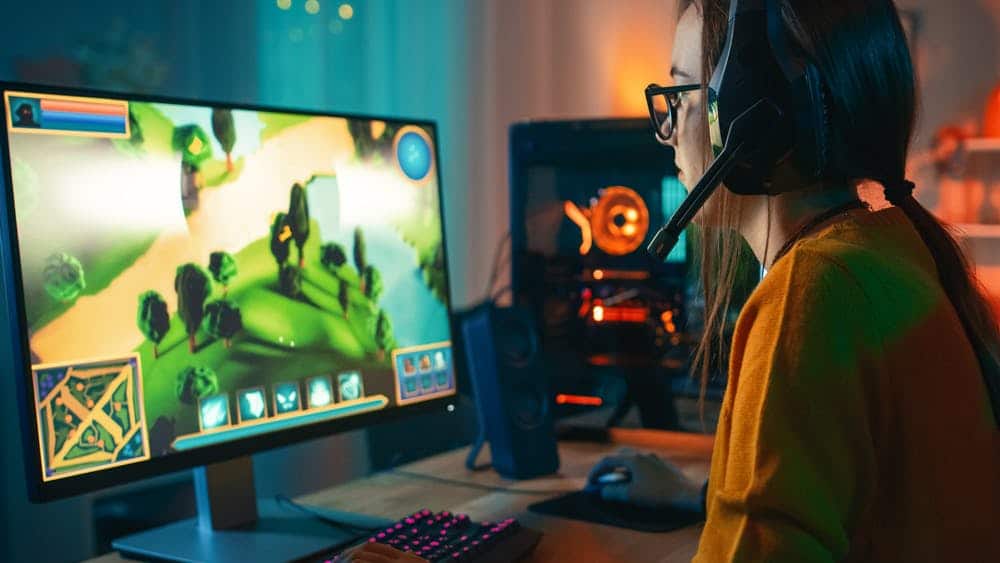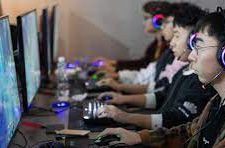In recent years, online gaming has not only become a popular form of entertainment but also a subject of interest for psychologists and researchers. The immersive nature of online games, coupled with their interactive and social components, has sparked curiosity about the psychological effects they have on individuals. Are you ready to take on the challenge? milyon88 offers competitive online gaming tournaments. This article delves into the psychology behind online gaming, exploring how it influences our thoughts and behavior.
The Power of Rewards and Achievements
One fundamental psychological aspect of online gaming is the use of rewards and achievements. Games often employ a system that provides players with a sense of progress and accomplishment as they overcome challenges and reach milestones. This reward-driven structure taps into the human desire for achievement and recognition, stimulating motivation and engagement.
The anticipation of earning rewards, such as leveling up, unlocking new abilities, or obtaining rare items, triggers the release of dopamine in the brain—a neurotransmitter associated with pleasure and reward. This neurological response reinforces positive behavior, leading players to continue their efforts and strive for further achievements within the game.

Escapism and Psychological Disengagement
Online gaming offers a form of escapism—an opportunity to temporarily disconnect from real-world problems and responsibilities. Engaging in a virtual environment allows individuals to adopt different identities and roles, granting them a sense of control and autonomy that may be lacking in their everyday lives.
Psychologically, this escapism creates a state of psychological disengagement, where players mentally detach from their real-life concerns and immerse themselves in the game world. This temporary respite from reality can provide relief from stress, anxiety, and the demands of daily life.
However, it is crucial to note that excessive and prolonged escapism can lead to negative consequences, such as neglecting real-life responsibilities, social isolation, and difficulty distinguishing between the virtual and real world. Therefore, maintaining a healthy balance between gaming and other aspects of life is essential.
Social Interaction and Connection
Online gaming has revolutionized the way people socialize and connect with others. Multiplayer games, in particular, facilitate social interaction by enabling players to collaborate, compete, and communicate with one another. These social components can have a profound impact on players’ thoughts, emotions, and behavior.
Through online gaming, individuals can develop friendships, form communities, and establish social bonds with like-minded individuals. The shared experiences, cooperative gameplay, and mutual goals foster a sense of belonging and camaraderie, promoting positive social connections and combating feelings of loneliness or isolation.
Moreover, online gaming provides a platform for individuals to practice social skills, teamwork, and communication. Engaging in multiplayer games requires players to coordinate strategies, resolve conflicts, and work together towards shared objectives. These interactions can enhance social competence and build valuable skills that can be transferred to real-life relationships and situations.
Cognitive Benefits and Skills Development
Online gaming is not merely a mindless pastime; it can also have cognitive benefits and contribute to the development of various skills. Many games incorporate elements that require problem-solving, critical thinking, decision-making, and spatial awareness.
For example, puzzle games often challenge players to think analytically, strategize, and find creative solutions to complex problems. Action games, on the other hand, demand quick reflexes, hand-eye coordination, and split-second decision-making. Engaging in these cognitive tasks within the context of gaming can enhance cognitive abilities and improve specific skill sets.
Research has shown that certain types of video games can enhance cognitive functions, including attention, visual-spatial skills, memory, and multitasking abilities. These cognitive benefits extend beyond the virtual environment, potentially influencing individuals’ performance in academic, professional, and daily life tasks.
Emotional Regulation and Catharsis
Online gaming can serve as a platform for emotional regulation and catharsis. For individuals experiencing stress, frustration, or anger, engaging in gaming can provide a safe and controlled outlet for these emotions. The intensity and immersion of gameplay can help individuals release pent-up emotions and experience a sense of catharsis.
Furthermore, online games often provide opportunities for self-expression and creativity. Character customization, storytelling elements, and immersive narratives allow players to engage emotionally with the game world, forging a connection and emotional investment. This emotional engagement can offer an avenue for self-exploration, emotional release, and a means to process and cope with various emotions.
The Influence of Online Gaming on Behavior
While the majority of individuals engage in online gaming responsibly, it is essential to acknowledge that, in some cases, excessive or problematic gaming behavior can occur. Certain individuals may become excessively attached to virtual worlds, neglecting real-life responsibilities, relationships, and self-care.
Problematic gaming behavior, known as gaming addiction or gaming disorder, can lead to adverse consequences in various areas of life. It is characterized by an inability to control gaming habits, neglect of personal and professional obligations, withdrawal symptoms when not gaming, and a preoccupation with gaming activities.
Understanding the potential impact of online gaming on behavior is crucial in promoting responsible and healthy gaming habits. Practicing self-awareness, setting limits, maintaining a balanced lifestyle, and seeking support when needed are essential for individuals to navigate the gaming landscape in a healthy manner.
Conclusion
Online gaming has a profound influence on our thoughts and behavior, tapping into psychological mechanisms that drive motivation, engagement, and social interaction. From the power of rewards and achievements to the benefits of social connection, cognitive development, and emotional regulation, online gaming provides a rich and complex psychological experience.
By understanding the psychological aspects of online gaming, individuals can make informed decisions about their gaming habits, maximize the positive effects, and mitigate any potential negative consequences. As online gaming continues to evolve and expand, further research and awareness will contribute to promoting a healthy and enriching gaming culture.
